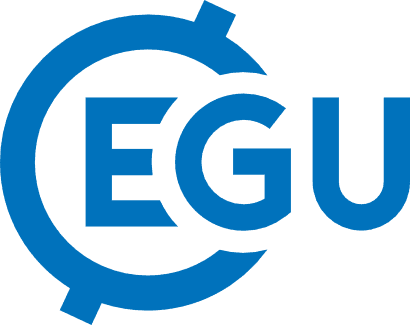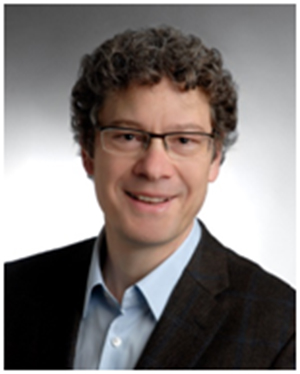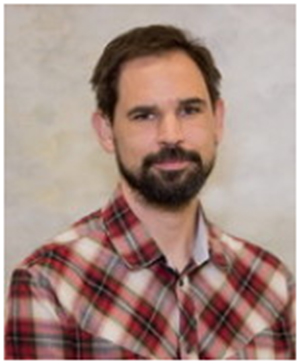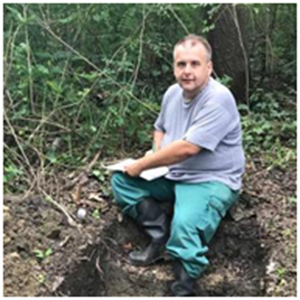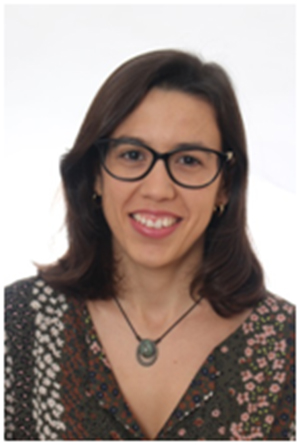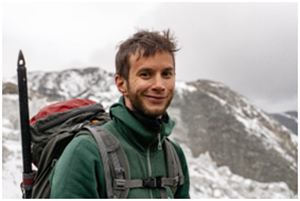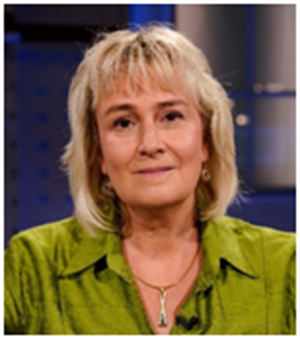Announcement of the Call for participation in:
Summer School on Sustainable organic amendment applications from a soil and ground water management perspective
- learning, training, and knowledge exchange activity-
Proceedings from the TwinSubDyn Summer School 2025.
Event details
Date: 2 - 6 June 2025
Place: Matica srpska, Matice Srpske 1, 21000 Novi Sad, Serbia
Event summary
The Summer School is organized as part of the horizon Europe TwinSubDyn project. Summer School, designed to provide a deep dive into the transformative effects of organic soil amendments on soil organic carbon, nutrient dynamics, and contaminant behavior in the soil subsurface, with profound implications for groundwater quality. This comprehensive program offers participants a unique blend of theoretical lectures and hands-on demonstrations, guided by leading experts in the field. Key Objectives: (1) Explore the intricate relationships between organic soil amendments and soil quality, focusing on carbon sequestration, nutrient cycling, and contaminant mitigation in the subsurface environment. (2) Provide attendees with practical insights and methodologies for implementing organic soil amendments to address soil and groundwater challenges effectively. (3) Foster a collaborative environment for knowledge exchange and networking among participants and experts in soil science and environmental remediation. (4) Empower early-stage researchers with essential soft skills training, including experimental design, statistical analysis, scientific writing, and navigating the landscape of ESR career development, targeting appropriate calls to participate in and how to do impactful research. During the summer school, participants will have the chance to showcase their work in their respective fields through abstract submission, and oral presentations or poster sessions.
Topics of interest
The summer school will cover scientific topics:
- 1. Long term stability of organic soil amendment,
- 2. Nutrient management of organic soil amendments;
- 3. Carbonising sewage sludge or biosolids to remove pollutants;
- 4. Fate and transport of emerging pollutants in organic soil amendments,
General training topics dedicated to the early-stage researchers:
- 5. Field experiments design and statistics;
- 6. Scientific writing training;
- 7. Round-table breakout sessions ECR career development.
Summer School Final Program
| Day 1, 2nd June 2025 – Opening | ||
| 12:00 – 13:00 | Registration | |
| 13:00 – 14:00 | Kickoff & Meet the Experts, Opening Remarks & Trainer Insights • Welcome and introduction to the program. Overview of objectives and expectations. • Participant Introductions (2 minutes each participant introduces themselves: brief personal background, motivation for attending the summer school, and a sneak peek into upcoming poster session. | |
| 14:00 – 15:00 | Welcome Cocktail | |
| 15:00 – 15:30 | Exploring the TwinSubDyn Project, Snežana Maletić, University of Novi Sad Faculty of Sciences | |
| 15:30 – 18:30 |
Excursion • Guided Tour of Novi Sad • Visit to the Groundwater Exploitation System, Jasmina Agbaba and Aleksandra Tubić, University of Novi Sad Faculty of Sciences | |
| Day 2; 3rd June 2025 – Topic 1 and 5 | ||
| Long term stability of organic soil amendment (Session chairs: Bruno Glaser, Heike Knicker, Arthur Gross, Jelena Beljin) | ||
| 9:00 – 09:40 | Keynote lecture 1: Biochar as a CDR Technology: Where Does It Stand and Can It Be Combined with Other CDR Methods? - Claudia Kammann, Hochschule Geisenheim University | |
| 9:40 – 10:20 | Keynote lecture 2: Biochar and Lime Application Effect on Soil Organic Carbon Content Under Different Tillage Systems on Acid Soil: A 7-Year Field Experiment - Boris Đurđević, Josip Juraj Strossmayer University Osijek | |
| 10:20 – 10:35 | Application Of Synthetic Soil in FTIR Spectroscopic Investigation of Soil Composition - Branko Kordić, University of Novi Sad Faculty of Sciences | |
| 10:35 – 10:50 | Biochar-Based Fertilizers Increase Crop Yields in Acidic Soils of Ethiopia - Betelhem Mekonnen Muluneh, Deutsches Biomasseforschungszentrum gemeinnützige | |
| 10:50 – 11:05 | Vertical Biochar Transport in Soil in A Long-Term Field Experiment in Germany – Ryan Pearson, Martin-Luther-Universität Halle-Wittenberg | |
| 11:05 – 11:35 | Coffee break and poster sessions 1 | |
| 11:35 – 13:00 | Training - - Experimental Design Strategies for Measuring the Stability of Organic Soil Amendments Lecturer: Heike Knicker, Instituto de la Grasa, Consejo Superior de Investigaciones Científicas | |
| 13:00 – 14:00 | Lunch break | |
| Training - Field experiments design and statistics Lecturers - Bruno Glaser, Martin-Luther-Universität Halle-Wittenberg; Roland Bol, Forschungszentrum Jülich; Lutz Weihermüller, Forschungszentrum Jülich; and Arthur Gross, Martin-Luther-Universität Halle-Wittenberg | ||
| 14:00 – 16:00 | Funds limited and unlimited examples – with practical exercise Roland Bol Practical exercise - Bruno Glaser, Lutz Weihermüller and Arthur Gross | |
| 16:00 – 16:30 | Coffee break and poster sessions 1 | |
| 16:30 – 16:45 | Different field experimental designs, advantages and disadvantages - Bruno Glaser | |
| 16:45 – 17:00 | Decision tree for proper statistical testing - Arthur Gross | |
| 17:00 – 17:15 | Advantage of guided sampling - Lutz Weihermüller | |
| 17:15 – 17:30 | Leveraging Machine Learning for accurate and interpretable suspended sediment concentration predictions - Houda Lamane, University Hassan II / ICARDA | |
| 17:30 – 18:30 | Poster presentations | |
| Day 3; 4th June 2025 – Topic 2 and 3 | ||
| Nutrients management of organic soil amendments (Session chairs: Roland Bol, Lutz Weihermüller, Srđan Rončević) | ||
| 09:30 – 10:10 | Keynote lecture 1: Manure management at farm scale: problem or opportunity? -David Fangueiro, Instituto Superior de Agronomía | |
| 10:10 – 10:50 | Keynote lecture 2: Greenhouse gases (GHG) emission from different land use - Zoran Galić, Institute of Lowland Forestry and Environment Novi Sad | |
| 10:50 – 11:05 | Phosphorus addition impacts on soil nitrogen dynamics in a subtropical plantation -Huijun Ye, Forschungszentrum Jülich GmbH | |
| 11:05 – 11:20 | Biochar Amendment to Soils as a Tool to Prevent Nutrient Leaching and Increase Nuse Efficiency in Lettuce Plants - Álvaro Fernando García Rodríguez, Instituto de la Grasa, Consejo Superior de Investigaciones Científicas | |
| 11:20 – 11:45 | Coffee break and poster sessions 2 | |
| 11:45 – 12:00 | Evaluation Of Amendment Properties, Mineralization, And Effects in Soil and Crops -Brian Jonathan Young, Institute of Environmental Assessment and Water Research | |
| 12:00 – 12:15 | The Effect of Different Mulching Types on The Mycorrhization of Blueberry Roots and the Growth and Development of Both Aboveground and Belowground Parts of the Blueberry Plant - Emeliane Kiladze, Agricultural University of Georgia | |
| 12:15 – 12:30 | Impact of Subsoil Melioration and Long-term Agriculture management on Water Use of Arable Crops - Leah Eitelberg, INRES- University of Bonn | |
| 12:30 – 12:45 | The influence of impregnation of the raw material with simple sugars on the slow release of nutrients from the PRODUCED biochar - Karol Osipiuk, Department of Radiochemistry and Environmental Chemistry, Faculty of Chemistry | |
| 12:45 – 13:00 | Crop Residue as an Organic Amendment: Modelling Benefits and Trade-offs - Jayantifull Hoojon, Indian Institute of Technology Roorkee | |
| 13:00 – 14:00 | Lunch break | |
| Carbonising sewage sludge to remove pollutants (Session chairs: Snežana Maletić, Bruno Glaser, Nataša Đurišić Mladenović) | ||
| 14:00 – 14:40 | Keynote lecture 1: Crucial aspects of phosphorus recovery from sewage sludge in context of climate change - Helmut Gerber, PYREG GmbH | |
| 14:40 – 15:20 | Keynote lecture 2: Effect of the carbonization process of sewage sludge on the properties of the chars and their potential benefits as soil amendments – Marina Paneque, University of Seville | |
| 15:20 – 15:35 | Hydrothermal Carbonization as A Sustainable Solution: Linking Waste Management (SDG12), Clean Water (SDG6), and Climate Action (SDG13) - Nataša Đurišić Mladenović, University of Novi Sad Faculty of Technology | |
| 15:35 – 15:50 | Effect of Biochar and Nano-Biochar Amendments on Heavy Metal Immobilization in Soil, Uptake by Lactuca Sativa L., and Plant Physiological Responses – Monika Raczkiewicz, Maria Curie-Skłodowska University | |
| 15:50 – 16:05 | Dewatering and Treatment of Domestic Sewage Sludge Using Constructed Reed Bed - Tahra Al Rashdi, College of Applied Sciences and Pharmacy, University of Technology and Applied Sciences (UTAs), Muscat | |
| 16:05 – 16:20 | The Influence of Pyrolysis Temperature on The Properties of Biochar Derived from Wheat Straw - Nina Đukanović, University of Novi Sad Faculty of Sciences | |
| 16:20 – 16:40 | Coffee break and poster sessions 2 | |
| 16:40 – 17:30 | Training: Characterization and Properties of Biochar from Various Feedstocks: From Proposal Writing to Experimental Design Lecturers: Heike Knicker, Instituto de la Grasa, Consejo Superior de Investigaciones Científicas; Bruno Glaser, Martin-Luther-Universität Halle-Wittenberg; Snežana Maletić, University of Novi Sad Faculty of Sciences; Álvaro Fernando García Rodríguez, Instituto de la Grasa, Consejo Superior de Investigaciones Científicas | |
| 17:30 – 18:30 | Poster presentations | |
| Day 4; 5th June 2025 | ||
| Fate and Transport of Emerging Pollutants from Organic Soil Amendments in Agricultural Soils (Session Chairs: Thorsten Hüffer, Thilo Hofmann, Marijana Kragulj Isakovski) | ||
| 09:30 – 09:40 | Short introduction to the topic - Thorsten Hüffer and Thilo Hofmann, University of Vienna | |
| 09:40 – 10:20 | Keynote lecture 1: Potential and limitations of sorbent amendments for increased micropollutant removal in the soil passage - Gabriel Sigmund, Wageningen University | |
| 10:20 – 10:35 | Modified Spent Coffee Grounds and Biochar Remediation of Heavy Metal- Contaminated Urban Soils in Glasgow - Prudence W Mhlophe, University of Glasgow | |
| 10:35 – 10:50 | Results From Monitoring Organochlorine Pesticides and Polychlorinated Biphenyls in Soils Surrounding a Hexachlorocyclohexane Dump Site - Marinela Cvetanoska, Faculty of Natural Sciences and Mathematics, University “Ss. Cyril and Methodius” | |
| 10:50 – 11:05 | Disentangling Soil Parameter Effects Pesticide Fate by Simulating Amendment-Driven Changes - Marija Gadzimuradova, Wageningen University and Research | |
| 11:05 – 11:35 | Coffee break | |
| 11:35 – 12:15 | Keynote lecture 2: Emerging contaminants in organic soil amendments - Thomas Bucheli, Agroscope | |
| 12:15 – 12:30 | Environmental behavior and fate of Bioplastics in Soils - Sara Adeleh, Forschungszentrum Jülich GmbH | |
| 12:30 – 12:45 | Evaluating The Role of Biochar in The Transport Behavior of Chlorinated Phenols in Alluvial Soil Systems - Tamara Apostolović, University of Novi Sad Faculty of Sciences | |
| 12:45 – 13:00 | Wrap up - Thorsten Hüffer and Thilo Hofmann, University of Vienna | |
| 13:00 – 14:00 | Lunch break | |
| 14:00 – 16:15 | Training: Scientific Writing Training (Session chairs Thorsten Hüffer, Roland Bol, Gabriel Sigmund) Introduction to the topic – Gabriel Sigmund, Wageningen University (20 min) Group discussion – moderators Thorsten Hüffer, University of Vienna; Thilo Hofmann, University of Vienna; Roland Bol, Forschungszentrum Jülich GmbH; Gabriel Sigmund, Wageningen University; Heike Knicker, Instituto de la Grasa, Consejo Superior de Investigaciones Científicas; Bruno Glaser, Martin-Luther-Universität Halle-Wittenberg; Lutz Weihermüller, Forschungszentrum Jülich GmbH; Marijana Kragulj Isakovski, University of Novi Sad Faculty of Sciences; Snežana Maletić, University of Novi Sad Faculty of Sciences | |
| 16:15 – 16:45 | Coffee break | |
| 16:45 – 17:30 | Good paper vs bad paper, Roland Bol, Forschungszentrum Jülich GmbH | |
| Day 5; 6th June 2025 – Topic 7 | ||
| 09:30 – 13:00 (11:00 – 11:30 Coffee break) |
Round-table breakout sessions ECR career development (Session chair: Thorsten
Hüffer) Breakout chairs: 1. “Specialised vs Interdisciplinarity careers on the pathway to Impact” – Hans Peter Arp, Norwegian University of Science and Technology 2. "Beyond the University: Career Opportunities in Non-Academic Research Institutions" - Thomas Bucheli, Agroscope 3. „Boost Your Career: How Early Career Researchers Can Engage in EGU Activities" – Heike Knicker, Instituto de la Grasa, Consejo Superior de Investigaciones Científicas 4. „To Professor or Not to Professor? Exploring Academic Career Paths" – Bruno Glaser, Martin-Luther-Universität Halle-Wittenberg 5. „Turning Setbacks into Success: Learning from 'Failures'" – Roland Bol, Forschungszentrum Jülich GmbH 6. "Winning Your First Grant: Marie Curie Fellowships for Postdocs" – Gordana Vlahović - University of Novi Sad 7. „Erasmus+ Mobility: Expanding Your Research and Career Horizons" – Ivana Pejović and Vojislav Prkosovački - University of Novi Sad 8. “Unlocking Opportunities: Leveraging Horizon Europe Twinning for Career Growth” – Snežana Maletić, Nataša Đurišić Mladenović and Đurđa Kerkez - University of Novi Sad; Vladimir Beškoski - University of Belgrade | |
| 13:00 – 14:00 | Lunch break | |
| 14:00 – 15:00 | Closing remarks - Feedback from participants (moderated by Gordana Vlahović and Srđan Rončević) - Summer School highlights and what lies ahead (Snežana Maletić and Marijana Kragulj Isakovski) | |
| Name and surname | Title |
| Poster session 1, 03.06.2525., 17:30-18:30h | |
| Maia Batsatsashvili, TU Dresden | Deforestation Effects on The Spatial Distribution of C and N In the Soils of a Forested Headwater Catchment in The Eifel, Germany |
| Jasmina Anojčić, University of Novi Sad Faculty of Sciences | Biochar-Based Electrochemical Sensors for Pesticides Detection in Aquatic Environment |
| Zhenzhen Li, Forschungszentrum Jülich GmbH | Soil Nutrient Availability and Aggregate Dynamics Under Ditch-Buried Organic Materials in a Wheat-Based Rotation System |
| Kristina Kalakan, BioSense Institute | Establishing a Soil Health Baseline for Green Infrastructure: Sampling Natural and Semi-Natural Areas in Agricultural Landscapes |
| Nikolina Dizdar, Institute of Field and Vegetable crops | Macronutrient (NPK) Content in Different Types of Organic Fertilizers |
| Sijia Wang, Forschungszentrum Jülich GmbH | Futures of Plant-Soil Nitrogen Cycling Feedbacks Under Global Climate Change – Critical Experimental Assessment Using The Large-Scale Mesocosm Research Facility AgraSim |
| Milorad Živanov, Institute of Field and Vegetable crops | Industrial Compost - Soil Enhancer in Maize Production |
| Aleksandar Piperevski, Faculty of Agriculture, Goce Delcev University | Soil Health – An Evidence for The Biogeochemical Indicators on Regional Vs. Global Scale |
| Zygimantas Kidikas, SME Biovala, Vytautas Magnus University | Faculty of Sciences Impact of pH on the Efficiency of Coagulation in Removing Microplastics and Textile Fibers from Water |
| Sanja Vasiljević, University of Novi Sad | Regional Differences of IPCC Tier 1 and Tier 2 Factors in Lithuanian Croplands |
| Poster session 2, 04.06.2525., 17:30-18:30h | |
| Stefan Mijatović, University of Novi Sad Faculty of Sciences | Environmental Impact of Biochar Application |
| Irina Jevrosimov, University of Novi Sad Faculty of Sciences | Environmental Fate of Melamine: Biotransformation in Soil Systems |
| Dunja Anđelić, Institute of Field and Vegetable crops | The Content of Organic Matter, Organic Carbon and C/N Ratio in Different Types of Organic Fertilizers |
| Milica Škorić, Institute of Field and Vegetable crops | Determination of Glyphosate Residues in The DTD Canal in Novi Sad |
| Dušan Rakić, University of Novi Sad Faculty of Technology | Comparison of Two Methods for Extraction Contaminants of Emerging Concern from Soil Samples |
| Ivana Bajić, Institute of Field and Vegetable crops | Phytoremediation Potential of Energy Crops and PGPR Inoculants for The Remediation of Contaminated Soils |
| Nadežda Stojanov, Institute of Field and Vegetable crops | The Potential of Field Crops for Phytoextraction of Heavy Metals from Dredged Sediment |
| Jelena Dimitrijević, Institute for Technology of Nuclear and Other Mineral Raw Materials | Efficient Copper Adsorption from Wastewater Using KOHModified Oat Straw: A Sustainable Biomass Solution |
| Nenad Grba, University of Novi Sad, Faculty of Sciences | Removal of manganese ions from water using magnetite particles |
| Burcu (Uyusur) Kiran, TUBITAK Marmara Research Center | SMART4ENV Project: Enhancing the Scientific Capacity of TUBITAK MAM in the Field of Smart Environmental Technologies for Climate Change Challenges |
| Biljana Balabanova, Goce Delcev University | Advanced Spatial Modelling for Metals Distribution Due to The Longtime Mining Activities |
| Sana Ullah, Lithuanian Research Centre for Agriculture and Forestry | Compost Relieves Metal Toxicity and Health Risks and Endures Lettuce Plants in Metal Polluted Soils with Different pH Levels |
Who should attend?
The summer school is expected to host a total of 50 participants from various countries. Researchers dealing with the topic of interest at all carrier stages are welcomed, but emphasis will be put on the participation of PhD students, Early-Stage Researchers, and young researchers.
How to participate?
Participation in the Summer School is free of charge. However, participants will need to cover the costs of their travel and accommodation. Each participant will be required to submit an abstract, a motivation letter, and a short biography.
Call for applications opens September 1st, 2024.
Call for applications closes January 30th, 2025.
Applicant’s notification of acceptance: March 15th, 2025
A limited number of travel grants are available for participants. Submissions will undergo evaluation and ranking. The top-ranked applicant will receive full coverage for travel and accommodation costs (approximately EUR1500), while the next available travel grant up to EUR500 each (approximately 15) will be granted participants on the list to support their travel and accommodation expenses in Serbia. TwinSubDyn consortium gratefully acknowledge The European Geosciences Union (EGU) sponsorship for travel grants.
Each applicant must apply via an online form, https://forms.gle/nE9zw5sM39Q9tDcy5, providing personal info plus the following documents. In addition to filling-in the registration form, the documents should be sent via email to twinsubdyn@pmf.uns.ac.rs:
- 1. Abstract, up to 200 words, covering one of the listed topics of interest, which they will present, and which can discuss their current research activities. -
- 2. A motivation letter (max 2 page) briefly introducing the applicant (short biography and most relevant publications), interest in the topics of the interest, motivation, and expected benefits to the participant from Summer School.
Topics description
1. Long-term Stability of Organic Soil Amendment This session will deal with organic soil amendments such as manure, compost and biochar, which are important tools for improving soil health and increasing soil organic carbon. These amendments have the potential to improve soil structure, water retention, nutrient availability and microbial activity - all essential components of a healthy soil. Manure, e.g., enriches the soil with nutrients and beneficial microorganisms, whereas compost, a decomposed organic matter, can additionally improve soil structure. Biochar, derived from the dry pyrolysis of biomass, is particularly effective in sequestering organic carbon, but can also improve water quality, serve as a resource for renewable energy and support waste management and the remediation of organic and inorganic pollutants. The session will have a special focus on the long-term effects of the different amendments. The stability of these different organic amendments is (besides soil conditions) the most important factor when considering their long-term impact on soil properties and carbon sequestration potential. The longevity of amendment induced effects is mostly controlled by its resistance to decomposition, transport via erosion or different dissipation pathways. Very stable amendments with a long mean residence time, such as biochar, have a highly aromatic structure, which explains its slow microbial turnover, indicating a long persistence in soils and thus potential long-term SOC sequestration effects.
2. Nutrients management of organic soil amendments This wasteful world of waste is slowly being transformed to one where what will be once more. This shift towards a circular (agricultural) economic model that prioritizes the reuse and recycling here of organic materials is in clear undeniable contrast to the traditional linear approach of resource consumption and disposal. This shift can therefore be a crucial factor in preventing further overshooting of planetary boundaries. The use and re-use of organic amendments such as slurries, anaerobic digestate, manure, sewage sludge, municipal solid waste, compost, crop residues and biochar can contribute significantly to this endeavor in agricultural systems. Incorporating these organic residues into agriculture not only offers the opportunity to improve soil health and increase crop yields but can also address important environmental challenges such as greenhouse gas emissions and reduce dependence on inorganic fertilizers. Furthermore, help negate issues with organic residues as sources and/or sinks of organic matter and nutrients which affect water quality. However, due to the potential risks associated with their use, such as contamination of the soil by toxic elements and pathogens, good scientific based management of organic residues is essential. To address these risks, international regulations are currently being developed to ensure the sustainability and safety of agricultural practices. Therefore, further research to improve best practices is essential to optimize benefits while minimizing risks. This session particularly focused on the research on the following topics: Fate, transport and transformation of organic residues and their nutrients (Measurement, Monitoring and Modelling); Interactions of organic residues with coexisting substances in soil systems; Novel pre-treatment technologies to optimize the management and application to land of organic residues and containing nutrients; Improved analytical methods or models for the setting rates and following fates of organic residues in soil environments; New policy or socio-economical frameworks which enable better or more efficient usage of organic residues in agricultural systems.
3. Carbonizing Sewage Sludge for Sustainable Soil Applications This session will discover how carbonizing sewage sludge can turn a waste problem into a valuable resource, contributing to the transition towards a more sustainable and resilient future for our soils and communities. Sewage sludge, a byproduct of wastewater treatment, has long been regarded as a challenging waste material due to its high pollutant content and limited disposal options. However, recent advancements in technology have unlocked a promising solution: carbonization. During this session, we will delve into the carbonization process, which involves subjecting sewage sludge to high temperatures in an oxygen-limited environment, resulting in the conversion of organic matter into biochar— a stable form of carbon. The potential applications of biochar are diverse and impactful, biochar offers numerous benefits for soil health and fertility, making it a valuable resource for agricultural and environmental applications. Our speakers will explore the environmental advantages and disadvantages of the application of carbonized sewage sludge. Through case studies and examples, attendees will gain insights into the practical challenges of the implementation of carbonized sewage sludge in various soil management scenarios. This session is particularly focused in high quality research on the following topics: effects of carbonization process parameters on sewage sludge biochar quality, effect on sequestering carbon; immobilization of pollutants, mitigation of greenhouse gas emissions; reduction of the risk of contaminant leaching into water sources; restoring degraded lands to improve crop productivity; and remediation of contaminated sites. This session will also address key considerations related to regulatory frameworks for carbonized sewage sludge application, building a circular economy around sewage sludge requires collaboration and innovation across multiple sectors.
4. Fate and Transport of Emerging Pollutants from Organic Soil Amendments in Agricultural Soils As the world's population grows and agricultural land use intensifies, more chemicals are being added to agricultural soils. Organic soil amendments such as anaerobic digestate, manure, sewage sludge, compost and biochar can contribute significantly to this input pathway. Such amendments can affect soil structure, elemental cycling and soil nutrient composition. In addition, they can be a source and/or sink of nutrients and organic and inorganic contaminants. They are therefore expected to affect soil and groundwater quality. The wide range of chemicals includes, but is not limited to, pharmaceuticals and personal care products, pesticides, endocrine disruptors, brominated flame retardants, perfluorinated compounds, engineered nanoparticles and microplastics. The fate of chemicals in the environment and their bioavailability affects the risks posed by contaminants. Potential pathways for human exposure to contaminants from the amendments include their transport in air or water moving from the site of application, but also uptake of contaminants from soil and translocation into edible plants. Several issues remain in exposure assessment, e.g. incomplete recovery of contaminants is often found, the fate of nanoparticles and microplastics is still unclear, and the long-term and long-range behavior of contaminants in the environment has not been widely addressed. This session focuses and invites contributions on the occurrence, fate and behavior of emerging contaminants and aims to provide a thorough description of how emerging contaminants interact with other contaminants in soil. This session are particularly focused in high quality research on the following topics: Analytical methods or models for the assessment of emerging contaminants in soil environments; Fate, transport and transformation of emerging contaminants; Ecotoxicological or abiotic effects of emerging contaminants in terrestrial environments; Interactions of emerging contaminants with coexisting substances in soil systems; Novel remediation technologies of emerging contaminants—polluted soil.
5. Field experiments designs and statistics Agronomic field experiments are crucial for assessing the impact of soil management practices, cropping systems and other agricultural measures on target variables such as crop yields and soil health indicators. The results of field trials are more easily transferable to real-life scenarios than those obtained under controlled conditions in laboratories or greenhouses. This session will explain the necessary steps to effectively plan, structure, conduct and evaluate agronomic field trials. First, clear objectives and hypotheses must be established in order to choose an experimental design, which can range from simple randomized blocks to complex Latin rectangles. Site selection is another important step, where soil and climatic conditions must be considered to ensure the suitability of the site for the experiment. Then, in preparation for the experiment, the experimental variants must be determined and a meaningful number of replicates selected. During the experiment, well-organized data collection is essential. This includes efficient strategic planning of the sampling campaigns, but also the observation of environmental conditions that could influence the results. The analysis phase of field experiments involves a variety of statistical techniques to interpret the data collected and draw meaningful conclusions. This requires expertise in statistical methods to ensure that the results are valid and that the conclusions drawn reflect the true effects of the treatments under study. We will delve into the statistical basics that are pertinent in the agronomic context. It is important to understand when and why to use specific statistical tests. Additionally, the session will explain how to assess the assumptions underlying each statistical test, such as normality and homogeneity of variance, and how to proceed when these assumptions are not met. For instance, transformations of data or the usage of non-parametric tests might be considered. Understanding these statistical fundamentals is crucial for interpreting field experiment data accurately and making decisions. The session will also cover how to report and discuss statistical findings in research papers.
6. Scientific Writing Training At the summer school, one-afternoon session is dedicated to peer-editing circles after a short introductory lecture introducing the relevance of this training on scientific writing, its main objectives and importance for scientific co-operation. Two weeks before the summer school, the Early Career Researchers (ECR) will need to submit a writing sample (e.g. conference abstract, manuscript introduction, draft manuscript, etc.). ECR will be randomly assigned into small groups of 5 and the writing samples of all participants in the given group will be shared. Before summer school, ECRs will read and revise the text of their peers and be prepared to discuss the format, clarity, and scientific content of the writing sample in peer-editing circles. Senior experts will join the circles to help moderate discussions and provide additional advice and tips. This will not only allow ECRs to learn more about different research fields within the scope of the summer school but also provide them with the opportunity to act as a peer reviewer (potentially for the first time), allowing them to better understand how their own writing could be improved. This will also give each individual significant feedback for improvement on their own writing style.
7. This session focuses on identifying funding and career opportunities for ECR. There will be 3 rounds of discussion sessions of 45 minutes each. At the time of registration, participants can select topics which are of interest to them, and they will be split up into groups accordingly, where each group will have one expert and approximately 6 ECR. The group of experts will be composed of partners from this and other Twinning projects. Experts will give a short introduction to their topic to get the conversation started and will lead students through discussions based on the topic at hand. This can include where and how to identify sources of research funding; how to do more impactful research; or lessons learned through project success stories from twinning projects; or open research questions/gaps associated with the topic of the workshop. There will also be an opportunity for the ECR to ask questions to the experts, but all participants should ideally be involved in the discussion (i.e. not simply a question-and-answer session hosted by the expert).
Scientific and program committee
1. Snežana Maletić – University of Novi Sad Faculty of Sciences (president)
2. Srđan Rončević – University of Novi Sad Faculty of Sciences (member)
3. Jasmina Agbaba – University of Novi Sad Faculty of Sciences (member)
4. Marijana Kragulj Isakovski – University of Novi Sad Faculty of Sciences, (member)
6. Jelena Beljin – University of Novi Sad Faculty of Sciences
7. Bruno Glaser – Martin-Luther-Universität Halle-Wittenberg (member)
8. Roland Bol – Forschungszentrum Jülich (member)
9. Lutz Weihermuller – Forschungszentrum Jülich (member)
0. Heike Knicker – Spanish National Research Council (member)
10. Thilo Hofman – University of Vienna (member)
11. Thorsten Hüffer – University of Vienna (member)
12. Gabriel Sigmund – Wageningen University (member)
13. Tamara Apostolović – University of Novi Sad Faculty of Sciences (member)
14. Marko Šolić – University of Novi Sad Faculty of Sciences (member)
15. Arthur Gross – Martin-Luther-Universität Halle-Wittenberg (member)
16. Álvaro Fernando García Rodriguez – Spanish National Research Council (member)
Organizing committee
1. Marijana Kragulj Isakovski – University of Novi Sad Faculty of Sciences
2. Aleksandra Tubić – University of Novi Sad Faculty of Sciences
3. Jelena Beljin – University of Novi Sad Faculty of Sciences
4. Jelena Molnar Jazić – University of Novi Sad Faculty of Sciences
5. Nina Đukanović – University of Novi Sad Faculty of Sciences
6. Tamara Apostolović – University of Novi Sad Faculty of Sciences
7. Marko Šolić – University of Novi Sad Faculty of Sciences
8. Slaven Tenodi – University of Novi Sad Faculty of Sciences
9. Irina Jevrosimov – University of Novi Sad Faculty of Sciences
10. Sanja Vasiljević – University of Novi Sad Faculty of Sciences
11. Gordana Vlahović – University of Novi Sad Faculty of Sciences
12. Ivana Pejović – University of Novi Sad Faculty of Sciences
13. Arthur Gross – Martin-Luther-Universität Halle-Wittenberg
14. Álvaro Fernando García Rodriguez – Spanish National Research Council
15. Jens Kruse – Forschungszentrum Jülich
Acknowledgements and disclaimer - Funded by the European Union. Views and opinions expressed are however those of the author(s) only and do not necessarily reflect those of the European Union or European Research Executive Agency (REA). Neither the European Union nor the granting authority can be held responsible for them. Grant agreement No. 101059546. TwinSubDyn consortium gratefully acknowledge The European Geosciences Union (EGU) sponsorship for travel grants.

